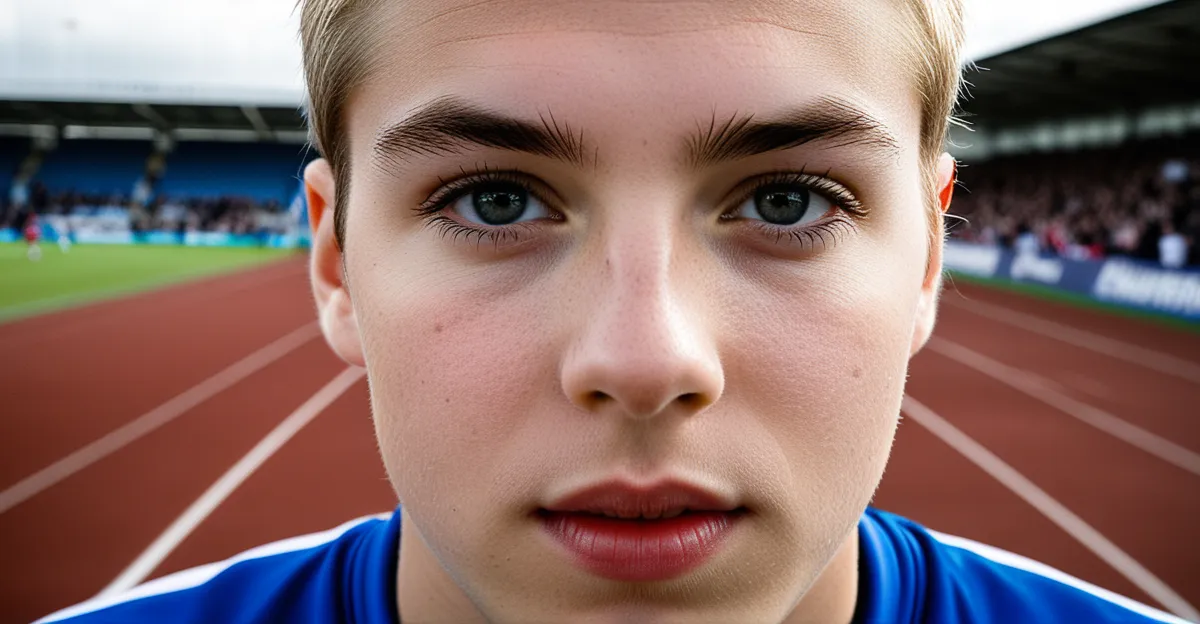Key Factors in Developing Young Sports Talent in the UK
Developing UK sports talent begins with effective talent identification UK programs designed to spot potential early. Scouts and coaches rely on comprehensive networks that emphasize spotting athletic ability at a young age, ensuring promising young athletes are nurtured promptly. Early detection is vital because it opens avenues for targeted development and specialized training, which can significantly influence an athlete’s long-term success.
Youth academies play a crucial role in the nurturing of young athletes. These academies provide a structured and supportive environment where budding sports stars receive age-appropriate training, access to expert coaching, and guidance focused on skill enhancement. Besides physical preparation, these academies emphasize holistic development, including mental resilience and tactical understanding, which are essential for competitive success.
Also to read : How Can UK Athletes Gain a Competitive Edge in International Sports Competitions?
An integrated approach combining school sports programs, community clubs, and national initiatives strengthens the development pathways for young talent in the UK. Sporting opportunities within schools ensure broad participation and skill building, while community clubs often serve as feeder systems for higher-level training. Collaboration across these areas offers a seamless progression route, enabling young athletes to transition smoothly from grassroots to elite levels. This integration is key in creating sustainable and effective talent pipelines within UK sports talent development.
Together, early talent identification UK, comprehensive youth development through academies, and strong links between schools, clubs, and national schemes provide a foundation that fosters consistent growth and excellence in young athletes.
Also to discover : What is the influence of UK sports media on public perception?
Top Talent Identification and Training Strategies
Top-tier talent scouting methods in the UK rely on a blend of objective assessments and nuanced observation. Scouts use physical tests, skill evaluations, and psychological profiling to identify promising young athletes before they reach peak development stages. This meticulous approach ensures that no potential is overlooked, addressing the question, How do scouts effectively pinpoint ability at early ages? The answer lies in combining quantitative metrics—such as agility and endurance measures—with qualitative insights from experienced coaches who gauge attitude and adaptability.
Designing sports training programs that evolve with the athlete’s age is essential. Early training focuses on fundamental movement skills and sport-specific techniques, gradually incorporating strength, tactical awareness, and mental resilience. These long-term training programs are tailored to individual development rates to maximize performance and minimize burnout. For example, youth training academies structure sessions that balance intensity and recovery, fostering steady progression aligned with the athlete’s maturation.
Bridging the divide between grassroots activities and elite competition pathways is a key challenge. Effective youth training academies serve as hubs that connect community clubs with national programs, providing clear progression routes. This networked approach allows athletes to transition smoothly from recreational play to high-performance environments. By integrating these levels, the UK’s sports development system ensures that talent identification is coupled with ongoing skill advancement, maximizing the potential of emerging athletes across disciplines.
Coaching Excellence and Support Systems
Effective coaching support UK is fundamental to nurturing young athletes and ensuring sustained progression. Investment in coach education and mentorship training equips coaches with up-to-date techniques and pedagogical skills. This creates environments where athletes receive tailored guidance, enabling them to refine technique, enhance performance, and develop resilience. A well-educated coach understands the nuances of age-appropriate training and the psychological demands of competitive sport.
Mentoring young athletes goes beyond physical training; it fosters confidence, motivation, and mental toughness. Mentors play a critical role in helping athletes navigate setbacks, manage expectations, and maintain focus. In the UK, mentoring programs are increasingly integrated into sports development schemes, providing consistent emotional and strategic support that complements physical preparation.
Incorporating sports psychology UK enhances this support network. Psychological services address areas such as goal setting, concentration, and stress management—critical elements that shape an athlete’s ability to perform under pressure. Performance analysis tools are often used alongside psychological input to create holistic development plans. Together, these resources build multidisciplinary support teams, combining coaches, psychologists, and trainers to promote well-rounded athlete development.
By advancing coaching support UK through education, mentoring, and psychological expertise, the system assures young athletes receive comprehensive assistance, paving the way for excellence both on and off the field.
Role of Funding and Resource Provision
Funding plays a pivotal role in UK sports talent development, as it directly affects the quality and accessibility of training environments. Effective UK sports funding comes from a combination of government grants and private sector contributions, which together finance coaching salaries, facility maintenance, and competition opportunities. Without sufficient financial support for youth, promising athletes may face barriers to accessing elite coaching or high-standard facilities, limiting their progress.
Investment in state-of-the-art sports facilities equips young athletes with the tools needed for advanced training. Access to modern equipment and well-maintained venues fosters skill enhancement and reduces injury risk, crucial for nurturing young athletes. For instance, establishing multi-sport complexes within communities ensures sustained engagement and supports diverse talent pools.
Importantly, funding also addresses equity by equalising opportunities for athletes from diverse backgrounds. Many talented youths may come from underfunded schools or economically disadvantaged areas. Targeted funding programs aim to remove these disparities, enabling broader participation and the discovery of hidden talent. This inclusive approach strengthens national talent pipelines by tapping into a wider demographic.
In summary, sustained investment in sports facilities coupled with strategic financial support for youth creates a foundation where young athletes can thrive. Without such resource provision, even the best talent identification UK systems and youth academies may fail to develop potential into excellence.
School Partnerships and Education Integration
Collaboration between school sports partnerships, community clubs, and national governing bodies is essential for effective sports education UK. Schools act as vital entry points for young athletes, offering broad access to physical activity and foundational skill development. Establishing strong links ensures that promising talent identified in school settings can transition seamlessly into higher-level training environments within clubs and academies.
Balancing academic commitments with athletic ambitions represents a significant challenge. The question, How do schools support the academic-athletic balance? is addressed through flexible educational policies that accommodate training schedules and competition demands. Many UK schools implement dual career pathways, allowing young athletes to pursue sports while maintaining academic progress. This integrated approach helps prevent burnout and supports long-term personal development, ensuring that nurturing young athletes involves both intellectual and athletic growth.
Promoting inclusivity and broad participation within schools also expands the talent pool by engaging diverse communities early on. Programs that encourage physical activity regardless of ability level foster a positive environment where all children benefit from sport. Inclusive school partnerships thus contribute directly to more comprehensive UK sports talent development by widening access and encouraging sustained involvement.
Together, coordinated school sports partnerships maintain continuity in young athletes’ journeys, supporting skill development and personal growth. This integration underpins the effectiveness of broader national strategies for developing future sports talent.








